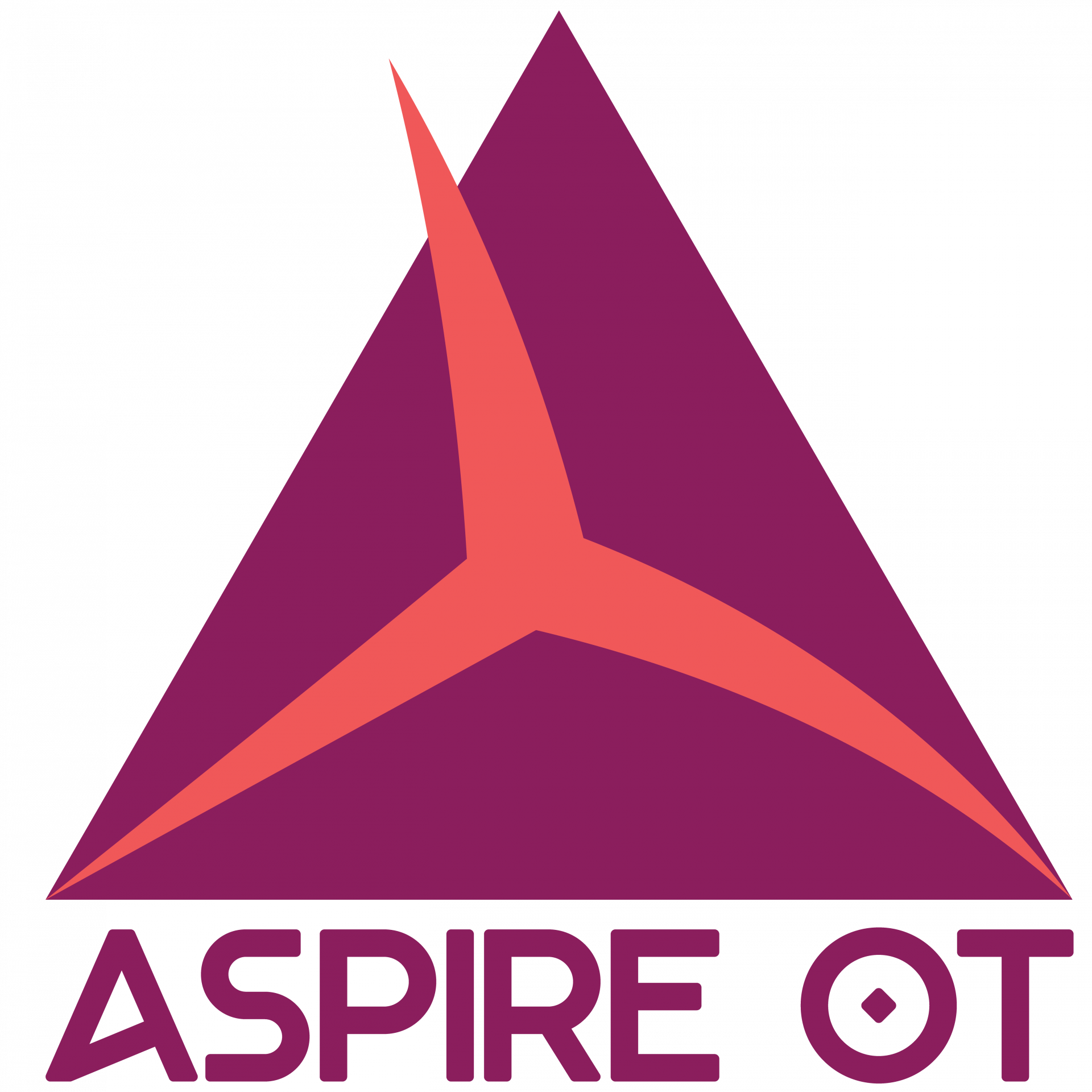

Welcome to guest blogger and Aspire OT instructors:
Jaclyn Schwartz, PhD, OTR/L &
Katherine Aylmer, OTD, OTR/L
Aspire OT is always excited to celebrate OTs, OTAs, and students who make an impact.
Dr. Schwartz’s work is focused on improving medication adherence across populations. Her work has been funded by the National Institutes of Health and the National Institute of Disability, Independent Living, and Rehabilitation Research.
Dr. Katie Aylmer is a research occupational therapist and student mentor with extensive experience in addressing medication management with a variety of clients.
Use of standardized assessments is the preferred approach to evaluation in occupational therapy. Standardized assessments are evaluation tools that are administered in the same way every time. Often standardized assessments have evidence-based scoring guidelines that indicate if a person meets a clinically meaningful threshold or is performing at a level significantly different than the general population. These insights help practitioners to inform the treatment plan and document progress.
Standardized assessments are developed by researchers across a series of studies that can span years. As part of the development process, assessment developers will create distribution plan. In the plan developers consider who should have access to the assessment (e.g. only OT, all health care professionals, anyone) and what if any training is necessary to administer the assessment with good fidelity. The developers also consider if financial support is needed to keep the assessment continuing to function. For, example for an app-based assessment, the developers need to keep the app up to date and functional with new updates to the tablet or phone’s operating system as well as to pay to data storage. Based on these considerations, the developers may choose to make the assessment publically available, available by contacting the developers, have the assessment sold by a well-known distributor like Pearson, or distributed by their University.
Sometimes it can be difficult to identify the legitimate place to attain an assessment. Many assessments can be found online or in journal articles about the assessment, but these may not be the authorized version of the assessment. It may be tempting to find an assessment for free on line and use it, but the consequences can be severe.
An example of this is the Morski Medication Adherence Scale (MMAS). The MMAS is a valid and reliable tool to measure medication adherence. Copies of the tool were readily found online and used by many students, researchers, and health care providers. The developer of the scale retained legal council and began suing universities and health care systems. The developer also asked researchers who used the scale to pay for the license or retract their published work. How do you know if you have permission to use an assessment? Let’s walk through a few examples. ·
In each of these examples, permissions to use the assessment are clearly described in the documentation. If you find an assessment on line or in a journal article and it does not have clear permission to use the assessment, it is best to do additional research to identify the source. If there is still uncertainty, it is best to email the developer of the assessment and ask for permissions to use the assessment.
Standardized evaluations play a crucial role in shaping treatment plans, decision-making, and overall patient care. However, it is important to obtain proper permissions from the developers or owners before utilizing these assessments.
Dr. Schwartz’s work is focused on improving medication adherence across populations. Her work has been funded by the National Institutes of Health and the National Institute of Disability, Independent Living, and Rehabilitation Research.
Dr. Katie Aylmer is a research occupational therapist and student mentor with extensive experience in addressing medication management with a variety of clients.
Use of standardized assessments is the preferred approach to evaluation in occupational therapy. Standardized assessments are evaluation tools that are administered in the same way every time. Often standardized assessments have evidence-based scoring guidelines that indicate if a person meets a clinically meaningful threshold or is performing at a level significantly different than the general population. These insights help practitioners to inform the treatment plan and document progress.
Standardized assessments are developed by researchers across a series of studies that can span years. As part of the development process, assessment developers will create distribution plan. In the plan developers consider who should have access to the assessment (e.g. only OT, all health care professionals, anyone) and what if any training is necessary to administer the assessment with good fidelity. The developers also consider if financial support is needed to keep the assessment continuing to function. For, example for an app-based assessment, the developers need to keep the app up to date and functional with new updates to the tablet or phone’s operating system as well as to pay to data storage. Based on these considerations, the developers may choose to make the assessment publically available, available by contacting the developers, have the assessment sold by a well-known distributor like Pearson, or distributed by their University.
Sometimes it can be difficult to identify the legitimate place to attain an assessment. Many assessments can be found online or in journal articles about the assessment, but these may not be the authorized version of the assessment. It may be tempting to find an assessment for free on line and use it, but the consequences can be severe.
An example of this is the Morski Medication Adherence Scale (MMAS). The MMAS is a valid and reliable tool to measure medication adherence. Copies of the tool were readily found online and used by many students, researchers, and health care providers. The developer of the scale retained legal council and began suing universities and health care systems. The developer also asked researchers who used the scale to pay for the license or retract their published work. How do you know if you have permission to use an assessment? Let’s walk through a few examples. ·
- Publically available. Weiner and colleagues 2017 developed a series of tools to look at the acceptability, appropriateness, and feasibility of interventions. The assessment is available as an attachment to the journal article. In the article the authors write, “we purposefully made the measures “open access” to ensure that the scales are freely available to all who might wish to use them.”·
- Freely available with permission. The Hill-Bone Medication Adherence Scale, with development funded by taxpayer dollars via the National Institutes of Health is also available free. However, to attain the scales, users need to go to the university website and fill out a form. Then the user is granted access to all of the files.·
- Available for purchase. The Sensory Profile is available for purchase from Pearson. When purchased, the user receives materials that clearly restrict copying or reproducing the assessment.
In each of these examples, permissions to use the assessment are clearly described in the documentation. If you find an assessment on line or in a journal article and it does not have clear permission to use the assessment, it is best to do additional research to identify the source. If there is still uncertainty, it is best to email the developer of the assessment and ask for permissions to use the assessment.
Standardized evaluations play a crucial role in shaping treatment plans, decision-making, and overall patient care. However, it is important to obtain proper permissions from the developers or owners before utilizing these assessments.
Aspire OT is a different kind of CEU company, owned by an OT & OTA.
Check out our upcoming webinars!
Want more?
Our CEU courses will provide you with practical strategies you can take straight to your OT practice.
Don't Miss A Thing!
Follow us on social media to stay up to date on all of our latest postings.
Join our newsletter
Get weekly updates on new blog posts, webinars, on-demand courses and more right in your mailbox.
Thank you!
Write your awesome label here.
Need a mentor?
Niccole and Kim would love to support you in your OT journey!
Just for OT Coaching is here to help you! Let Kim and Niccole share their experiences in clinical practice and professional leadership to help you achieve better outcomes.



